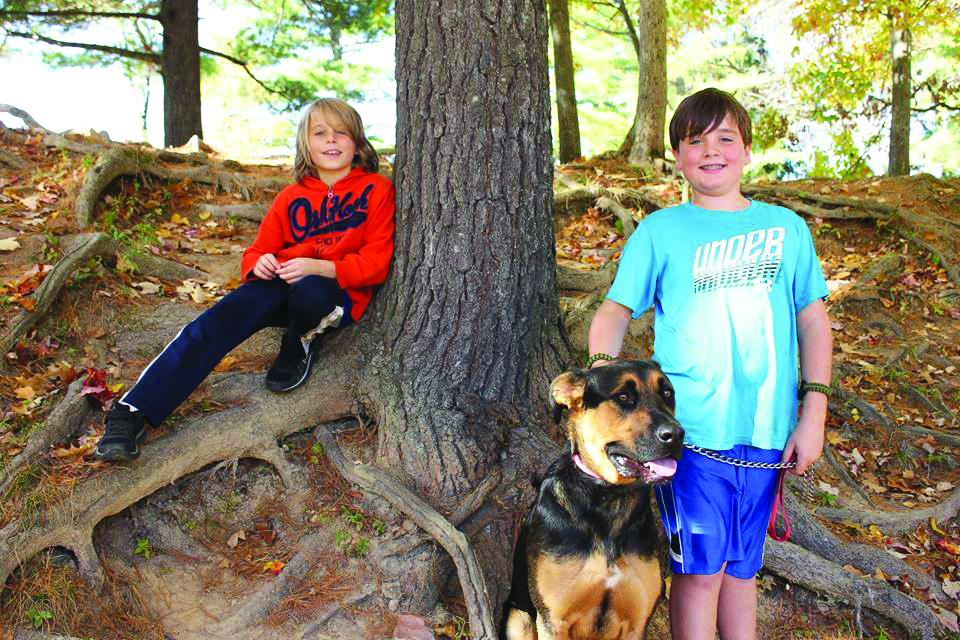
If there were one word to describe Zeus, it would be goofy.
He’s big, but he’s one of those dogs that don’t quite realize their own size. He looks like a pretty solid mix between a German shepherd and a Rottweiler, but he’s also got quite a bit of Dachshund in him, if you can believe it. His paws are just a bit too big for his body, and he has a habit of getting too excited and smacking people with them. He packs quite a punch.
Ryan Jackman and his wife, Margaret, brought Zeus home from the Oromocto Society for the Prevention of Cruelty to Animals in January of 2014. He was six months old at the time.
“We decided we were going to look for a dog,” Jackman said, “and Margaret did not want a German shepherd, a short-haired, or a big dog. So she got all of those things. But once we saw him, that was it.”
Jackman’s family is among one of many that has made the choice of adopting a dog over buying one from a breeder. While adopting might seem like a more cost-friendly option, there are other challenges that present themselves when adopting a dog from the SPCA.
Many people don’t realize you have to go through a very selective process when trying to adopt a dog. The shelter does its best to make sure the dog is going to be going to an environment that best suits them.
Sharon Slipp works as a veterinarian and spends a lot of time with cats and dogs on a daily basis. According to her, this screening process is important to make sure that the dog is going to be well cared for.
“Because they’re dealing with rescue animals, they want to make sure that people who are looking to adopt pets are committed to that pet, and aren’t making an impulse decision,” Slipp said.
Besides the basic act of providing a dog shelter for the rest of its life, Slipp also knows all too well that health issues can be a concern.
“When you adopt a pet, you have to make a commitment to caring for that pet’s health,” Slipp said. “Sometimes that can come with a financial commitment, which can be a fair size, especially if the pet has health issues already or ends up having health issues.”
Behavioural issues can also come into play, especially with rescue animals that have unclear backgrounds. This almost became a problem for Jackman and Zeus.
“At first, the kids were afraid of him,” Jackman said. “We almost had to bring him back. I don’t know where he came from, but he was still just a pup, and he was nipping. And he was so big. Max was really afraid of him. He was trying to figure out his place in the pack.”
This is why the screening process becomes increasingly important.
Jackman said making multiple trips to the SPCA was hard because sometimes it’d be the same dogs they’d see each time. If a dog doesn’t mesh well with a family, they will often be brought back.
Despite the challenges that come with adopting dogs, Jackman and Slipp both agree that it’s a very rewarding experience.
“I’d much rather give a dog that doesn’t have a home, a home,” Jackman said. “Breeder dogs are going to get sold. In most cases they’re accounted for before they’re even born.”
Slipp agreed that by supporting and adopting animals from the SPCA, it allows the organization to keep helping animals in need. Besides that, there are all kinds of emotional and health-related benefits to having a dog. Either way, everyone wins – the owners, the organization, and most importantly, the animals.
“We always say that Zeus is pretty lucky,” Jackman said. “He could have ended up with a pretty crappy family. He won the lottery. We did too, we’re pretty lucky. He’s a good dog.”
